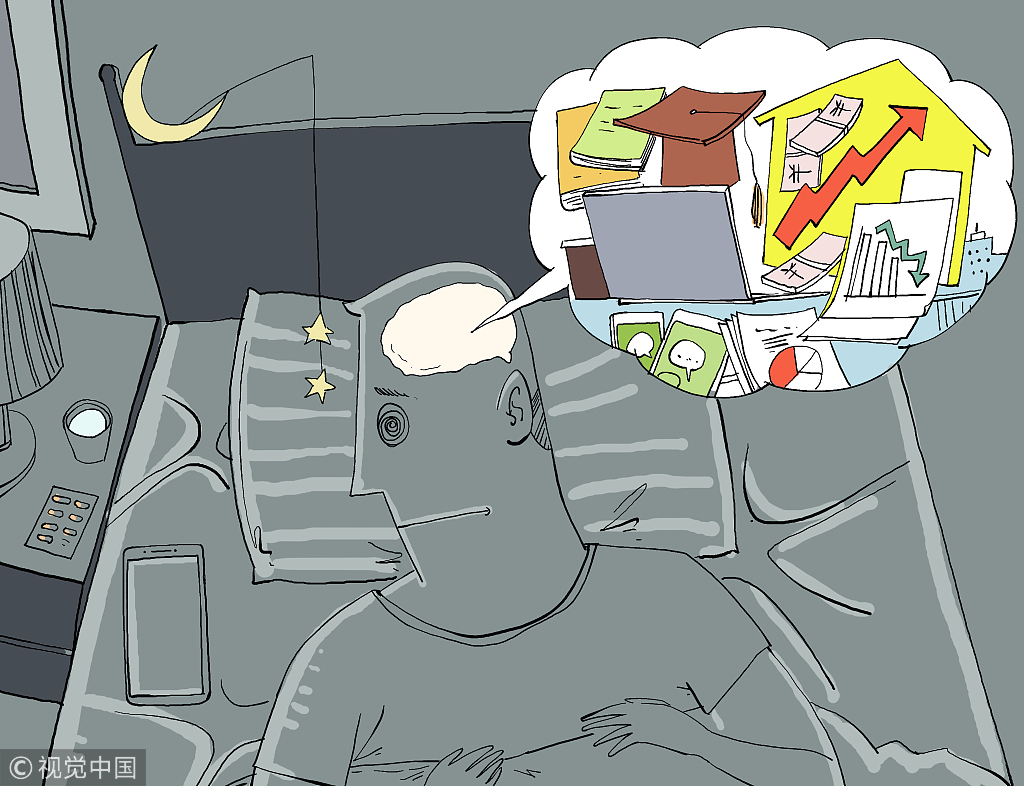Insomnia spreads among young Chinese


Intense pressure
Many young people are under intense pressure from work and study, and sleep less in order to compete with their peers, but that results in poor mental health and contributes to many of their sleep problems. Overuse of electronic devices, such as smartphones, is another factor significantly affecting their sleep.
Perinur, who is in her mid-20s, started to have sleep disorders in 2013, her first year at university. There was one week when she never got to sleep before 5 am.
She has been intermittently plagued by sleep problems ever since. In September 2017, her disorder worsened and she could not sleep before 4 am for a month.
More recently, she still has about three days a week when she cannot sleep well. That frustrates Perinur, who tries to force herself to sleep at a normal time.
"Every sleepless night, I cannot help my mind wandering to think of various things; something that may have happened a long time ago or something that may not even have happened or existed," she said. "I just can't stop it."
Perinur takes a small dose of pills to help her get to sleep if she struggles to do so for three consecutive days. She once tried some herbal medication, said to be good for calming the nerves, but it was ineffective.
Xu Yueping, a third-year postgraduate student at Anqing Normal University in Anhui province, who wants to teach English, is preparing her graduation thesis. Its progress has been quite slow, putting her under great mental pressure.
She goes to bed around 1 am every night and wakes up before 7 am, sometimes even before 6 am, and has about three days of serious insomnia a week.
Her condition worsens if she thinks too much about her schedule or what happened during the day.
"I just cannot fall asleep," she said. "I think my mind is more active at night, when I can think about things deeply, without interference."
Xu, 24, said she feels trapped in a vicious circle. She is used to writing her thesis at night, but that occupies her sleep time. In turn, her thesis has progressed slowly because of her lack of rest, and increasing anxiety.
"I know insomnia and sleep disorders are quite harmful, but it is difficult for me to adjust my sleep habit immediately," she said.
Xu began to have sleep problems three years ago. She used to chat or browse on her smartphone for an hour a night before sleeping, but recently realized that could be affecting her sleep.
She now puts her phone out of reach before going to bed. She also tried exercise and drinking milk before going to bed to try to sleep better, with limited effect.
- Tongji University's Wu Jiang assumes presidency of architects' Asia council
- PLA carries out drone training operations near Dongsha Islands
- PLA monitors US naval vessels transiting the Taiwan Strait
- Losar warmth in a new home
- New carrier rocket built by Beijing company fails in maiden flight
- Toxic gas leak in Anhui classified as major work safety liability accident




































